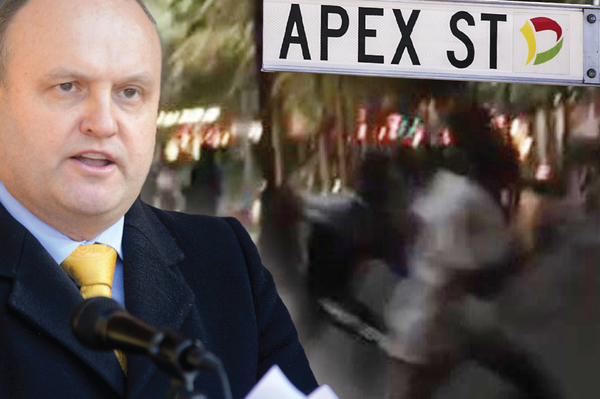By Cam Lucadou-Wells
La Trobe MP Jason Wood has maintained his rage against “gangs” of South Sudanese and Pacific Islander youths, despite police “breaking the back of Apex”.
Mr Wood, who is chairing a federal parliamentary inquiry into migrant settlement outcomes, said the Apex gang had grown rapidly since “perpetuating” the 2016 Moomba riots.
It was “engulfing other gangs and becoming more violent and daring by the day”.
“Most members of these violent youth gangs like Apex are of Sudanese or Islander descent and are often new migrants to our country,” he said.
Victoria Police’s Deputy Commissioner Shane Patton reportedly told the inquiry on 12 April that Apex was a “non-entity”.
Police had charged most of the gang’s leaders, who were now in jail. The group was “in recession”, Deputy Commissioner Patton said.
The inquiry heard that numbers of Victorian youth offenders born in New Zealand and South Sudan were “over-represented” compared to their population numbers.
Young people born in South Sudan made up 1.56 per cent of alleged youth offenders in Victoria, even though South Sudanese account for 0.23 per cent of the youth population, according to official crime statistics.
Casey Council had no detailed statistics on migrant youth committing “anti-social behaviour” in its municipality, according to its inquiry submission.
There was data supporting an increase in youth crime, particularly in low socio-economic pockets of Casey, the council’s community life director Steve Coldham wrote.
Mr Wood said police had indicated they’d “broken the back of Apex” but “it’s important to understand that young criminals like this don’t have a formalised structure like other bikie gangs”.
“It’s more complex to determine whether or not they’re gone.
“The issue that is still very apparent is that when it comes to aggravated burglary and riots and affrays, Sudanese youth come in at second, and when it comes to serious assaults they’re third highest on the list.”
Mr Wood said much of the evidence at the hearing focused on employment and community involvement.
On 19 April, Mr Wood chaired a round table with Casey and Cardinia mayors, Les Twentyman and community groups on ‘breaking down barriers’ with young offenders.
The forum looked at using sport as a way to keep young people busy and avoiding boredom.
Mr Wood has also proposed “one-strike” bail laws for serious, violent crimes, and backed the Federal Government’s deportation of young people on visas for violent offences.
He would also specifically tackle violent youth gangs with a database on gangs, and a joint state-federal police anti-gang taskforce in Melbourne’s west and south-east.
Mr Wood said a collaborative approach, including better targeted services for migrant youths, was needed to ensure young people didn’t “fall into this Apex abyss”.
Centre for Multicultural Youth, in its submission to the inquiry, warned that deporting youth offenders was “disproportionate and inappropriate”.
“Government and political leaders must cast aside media pressure, consider the facts and the evidence about what works and without panic develop and oversee the implementation of effective social policy.”
Casey Council had submitted to the inquiry that the issue was compounded by a lack of migrant settlement services, lack of federal crime prevention grants and lack of funding to support socially isolated migrant parents.







